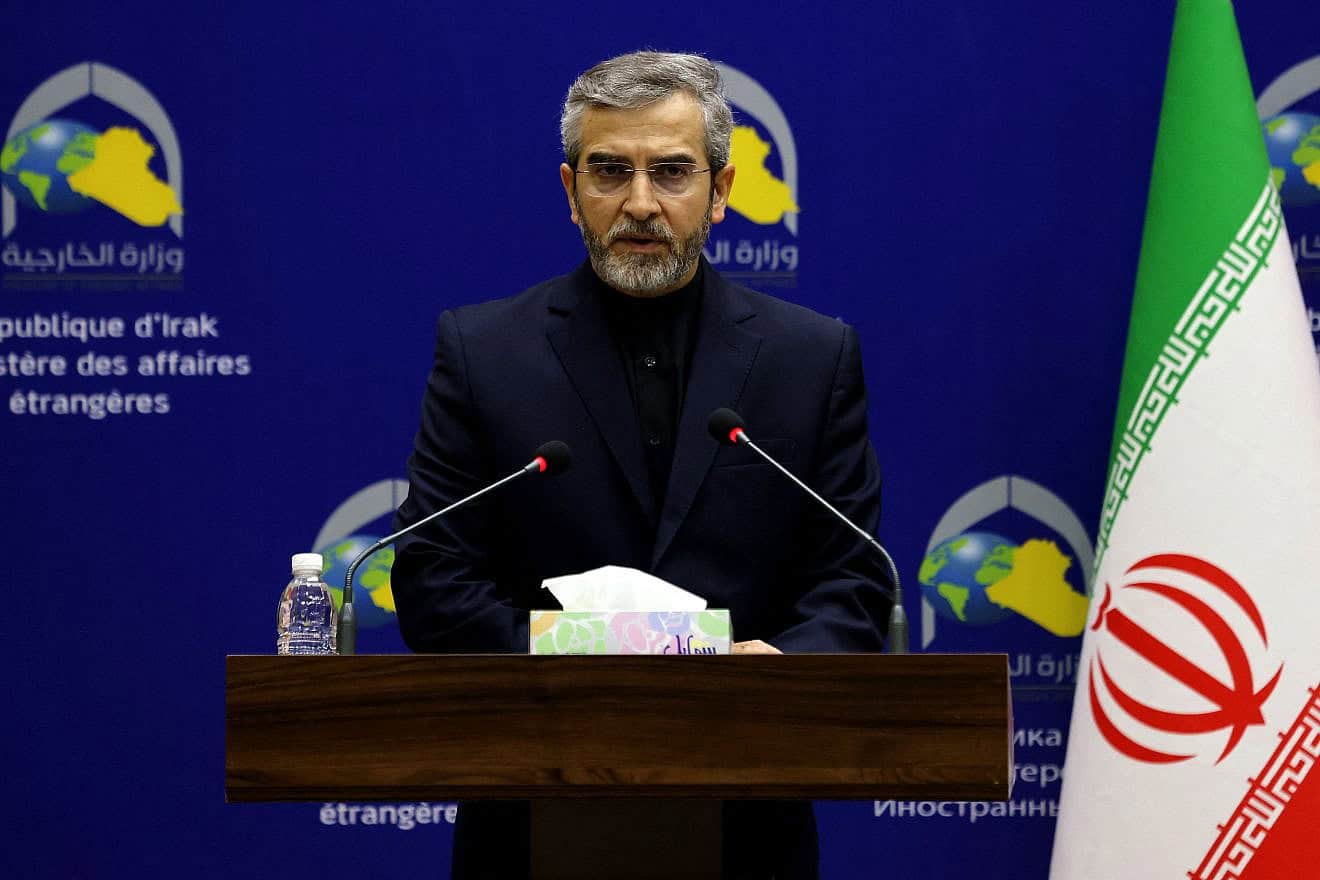Hamas’s Oct. 7 massacre in southern Israel shifted the balance in the Middle East “in favor of the resistance,” interim Iranian foreign minister Ali Bagheri Kani said on Tuesday in his first interview with a U.S. outlet.
The Jewish state “cannot return once again to before the 7th of October,” Bagheri Kani told Newsweek, adding that Jerusalem “should accept this change and shift of balance that has been created today, which is against Israeli Zionists and in favor of the resistance.”
The “axis of resistance” includes Hamas, Hezbollah, Islamic Jihad, the Houthis and other Iranian-backed terrorist groups across the region.
Bagheri Kani said that Israel needs to “unconditionally, rapidly and swiftly evacuate from all of the occupied Palestinian territories in Gaza” or face United Nations Security Council action.
Bagheri Kani, who was appointed following the death of Hossein Amir-Abdollahian in a helicopter crash in late May, arrived in New York on Monday to participate in two meetings of the Security Council.
If negotiations fail to bring an end to the Israel Defense Forces campaign against Hamas, the Security Council needs to step in “to stop this Zionist regime from committing the genocide and atrocities and killings, even if it necessary to resort to force,” the Iranian diplomat said.
Bagheri Kani threatened Israel directly, saying that the Jewish state “should face serious resistance in the region by these resistance groups and also by the nations and peoples in the region” if it continues its military campaigns against Iran-backed terrorist organizations.
“If they want to enter into Lebanon, it will be a very deep well for them. So, today, in the small hole of Gaza, they have failed, so definitely in the future, in the deep well of Lebanon, they will be further defeated,” he said. “Lebanon will be an un-returnable hell for the Zionists.”
In Tehran’s view, U.S.-led unilateralism “has not only failed in bringing a solution to this global issue and problem, but at the same time, the U.S. has been sending and delivering state-of-the-art fatal weapons to Israel in order to continue these atrocities, killings and genocide.”
“We believe that, in this regard, the United States of America is not an honest mediator regarding the issue of Palestine and Gaza,” Bagheri Kani said of ongoing ceasefire talks. “If the Americans are honest regarding the mediation, it is not necessary for them to make a big deal. It would just be enough to stop the delivery of fatal weapons to Israel.”
Asked about the prospect of Iran returning to the negotiating table to discuss the renewal of the 2015 nuclear deal, Bagheri Kani underlined Tehran’s conviction that “the ball is in the court of the other side.”
The Iranian diplomat claimed that the Islamist regime has always been “very honest and serious and, of course, we will be honest and serious when it comes to ensuring interaction with all international actors.”
Following meetings with Iranian officials in May, U.N. nuclear watchdog chief Rafael Grossi told reporters that the regime’s cooperation with the International Atomic Energy Agency had been “completely unsatisfactory” in recent months and urged the country to adopt “concrete” measures to address concerns.
There have also been recent Iranian threats of a push towards the bomb. On May 9, an adviser to supreme leader Ali Khamenei said that Iran would weaponize its nuclear program if Israel “threatens its existence.”
Last month, Tehran threatened that an IDF military operation against Hezbollah terrorists in Lebanon could lead to an “obliterating war” with all of Tehran’s proxy groups, warning that “all options are on the table.”


























